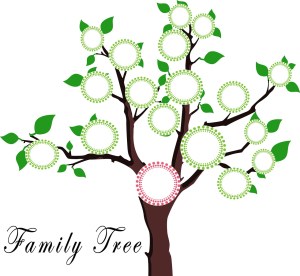
There are several scriptures that relate to the phrase “a workman is worthy of his hire.” To name a few: Luke 10:7, 1 Timothy 5:18, Mathew 10:10, Leviticus 19:13, and Deuteronomy 24:15. CLICK HERE to read those scriptures in Bible Gateway. Consider looking at each scripture in a variety of translations. Depending on your religious paradigm, the interpretations will vary.
Here’s the issue with our standard belief system concerning people getting paid, specifically to “minister.” For some odd reason, we seem to have it in our minds that since “freely you’ve received – freely give.” This scripture comes from Matthew 10:18. CLICK HERE to read a variety of translations in Bible Hub. I encourage you to read those translations before looking at the definitions below. Once you’ve done that, look at the original Greek in Bible Wheel. CLICK HERE for that information. Here is a synopsis of those definitions.
- FREELY: δωρεαν dorean {do-reh-an’} without a cause, in vain, for nought, freely, undeservedly
- RECEIVED: λαμβανω lambano {lam-ban’-o} receive, take, have, catch. To take, to take with the hand, lay hold of, any person or thing in order to use it, to take up a thing to be carried, to take upon one’s self, to take in order to carry away. Without the notion of violence, i,e to remove, take away. To take what is one’s own, to take to one’s self, to make one’s own. To claim, procure, for one’s self. To associate with one’s self as companion, attendant – of that which when taken is not let go, to seize, to lay hold of, apprehend. To take by craft (our catch, used of hunters, fisherman, etc.), to circumvent one by fraud. To take to one’s self, lay hold upon, take possession of, i.e. to appropriate to one’s self. Catch at, reach after, strive to obtain. To take a thing due, to collect, gather (tribute). To take, to admit, receive. To receive what is offered, not to refuse or reject. To receive a person, give him access to one’s self. To regard any one’s power, rank, external circumstances, and on that account to do some injustice or neglect something. To take, to choose, select. To take beginning, to prove anything, to make a trial of, to experience. To receive (what is given), to gain, get, obtain, to get back.
- GIVE: διδωμι didomi {did’-o-mee} grant, put, show, deliver, make. 1) to give 2) to give something to someone of one’s own accord to give one something, to his advantage. To bestow a gift. To grant, give to one asking, let have. To supply, furnish, necessary things. To give over, deliver. To reach out, extend, present. To give over to one’s care, entrust, commit. Something to be administered. To give or commit to some one something to be religiously observed. To give what is due or obligatory, to pay: wages or reward. To furnish, endue. To give, to cause, profuse, give forth from one’s self. To give, hand out lots. To appoint to an office. To cause to come forth, i.e. as the sea, death and Hell are said to give up the dead who have been engulfed or received by them. To give one to someone as his own. As an object of his saving care. To give one to someone, to follow him as a leader and master. To give one to someone to care for his interests. To give one to someone to whom he already belonged, to return 4) to grant or permit one. To commission.
 Let’s take this scripture and reword it a little and see if that changes the meaning. Here’s the original in the NIV: “Heal the sick, raise the dead, cleanse those who have leprosy, drive out demons. Freely you have received; freely give.” Now, let’s replace the words freely, receive and give with another translation that might explain the scripture a bit better. “Heal the sick, raise the dead, cleanse those who have leprosy, drive out demons. Undeservedly you have laid hold of; undeservedly deliver.” There is nothing in any of the above definitions that points toward receiving pay for services rendered. There is no hint of that anywhere! On the other hand, when looking at the scriptures in the first paragraph, there is clear evidence that a workman is truly worthy of his hire. Bottom line, when people provide a service, pay them what they’re worth. If you don’t agree, go somewhere else.
Let’s take this scripture and reword it a little and see if that changes the meaning. Here’s the original in the NIV: “Heal the sick, raise the dead, cleanse those who have leprosy, drive out demons. Freely you have received; freely give.” Now, let’s replace the words freely, receive and give with another translation that might explain the scripture a bit better. “Heal the sick, raise the dead, cleanse those who have leprosy, drive out demons. Undeservedly you have laid hold of; undeservedly deliver.” There is nothing in any of the above definitions that points toward receiving pay for services rendered. There is no hint of that anywhere! On the other hand, when looking at the scriptures in the first paragraph, there is clear evidence that a workman is truly worthy of his hire. Bottom line, when people provide a service, pay them what they’re worth. If you don’t agree, go somewhere else.
With that, we move onto a story. Many reading this know that I’m a musician and create music for the purposes of it being therapeutic. In addition, I create exercises and “practice” opportunities (available on this site) for those on a journey of Christian maturity. In a sense, they are both a form of ministry. The music is more acceptable by the church for “pay” than teachings. In the minds of some, I should be giving out these materials for free. I also get that request (only from Christians) on the Healing Frequencies Music website, especially those who really want a particular album but can’t pay for it. In fact, Christians tend to be the cheapest and want something for nothing. The only rude correspondence to date has come from those who say they are Christians – 100% of the time. What does this say about the Christian community as a whole?
I see some strange attitudes when it comes to Christian conferences as well. Conferences aren’t cheap to host. People fail to realize that renting a building, purchasing supplies, and paying service providers costs money. There’s this paradigm of “God will provide” so you should just let us in for free. I was at a conference where a group of women all wanted a teaching set. They agreed to pool their resources so they could purchase the whole set (as a download) and share it among themselves. In other words, the woman who purchased it would then send a copy of the downloads to the other women so they’d all have their own copy. I watched this play out for a bit while they discussed it and eventually asked a simple question, “Do you think that’s a good trade?” Long story short… after some further discussion, they decided not to go through with it.
When you do a job, you’re providing of form of “ministry” to someone whether it be fixing a vehicle, cutting your hair, giving your money to the teller at the bank for a deposit, etc. That person is doing something for you that you can’t do yourself. So, he/she is ministering to your needs. To understand more of why I say that, consider reading my article about ministry vs. jobs. From what I’m reading in Matthew 10:8, it doesn’t direct any meaning toward providing services for free. There aren’t more scriptures that seem to point to that interpretation either (unless I’m missing one) but there ARE plenty of scriptures that address being paid what you’re worth.
The topic of a workman being worthy of his (or her) wages intermingled with the “freely receive, freely give” concept has messed up some people because we tend to swallow what’s preached at us – hook, line, and sinker. We haven’t been responsible for our own spiritual growth because we allow what pastors teach us as “thus sayeth the Lord.” We seem to have no problem paying a pastor… well… most of the time. They tend to live on next to nothing and have to get a second job in order to make ends meet while we demand their attention to “fix” issues in our lives that we could often fix ourselves by putting at bit of effort into a good solution. This includes Christian counseling, which I had first-hand experience during marriage counseling. What’s the point if we’re not going to do what’s suggested?

Here’s the thing…. when you pay for something, you have ownership in/of it. When you don’t pay, you have zero ownership unless the giver chooses to turn over the ownership to you. A gift is a choice by the giver, not the recipient. I was at another conference where one of the speakers kept coming up to the booths saying, “You’ll give me one of those for free?” It was more of a demand than a request. This is all about trading. When you trade, you’re exchanging one thing for another. We can have good trades and bad trades. Much of that depends on our attitude in the midst of the trade. If there’s an expectation that something will be free, that’s a bad trade. I have another teaching on trading so I’ll not go into those details here. CLICK HERE for that post.
The Bible also states that we’ll reap what we sow. If we sow bad trades, we’ll reap bad trades. If we have expectations that things will be free because we believe they should be, then we’re not operating with honor or good character. That’s also a bad trade. A good trade involves putting something of value towards what you desire. When you do it that way, you own it. When it comes with an expectation, that’s of no value because it dishonors the giver. Let the giver make the choice to freely give.
We now get back to the main point at the beginning – a workman is worthy of his hire. That’s plain and simple with little room for misinterpretation. When reading the various versions of the Bible on this subject, there does seem to be uniform agreement. That’s not the case with Matthew 10:8. Hmmm…. I find that interesting but will leave that up for your own pondering as to why that is. The key here is that in order to make a good trade, both the giver and recipient should be on the same page. If you find something overpriced, then don’t moan and whine about it. (There is cheese to go with that whine.) Go find something within your price range that works for you. This includes counseling, receiving services of any kind, attending conferences, etc. If we simply don’t have the funds, then let’s not put it on the giver to lower the price enough that we can have what they’re offering. This might be a growing opportunity for each of us to learn how to exercise our faith muscle and see how God provides.

Why expect someone to meet our needs and desires when we can use a situation as an opportunity to sit with Jesus and discuss His best plan? When we learn to look at our situations through the eyes of Yahweh, we often have a completely different picture of the process and any solutions that go with it. As we learn to move from our personal expectations and paradigms to those of Yahweh, we grow in character. I encourage all those reading this to get outside old religious boxes of expecting things to be free just because of a perception that it’s “ministry related.” For many of us, what we do replaces a 9 to 5 job. We have training in our fields and offer a high quality product. Why should we be expected to give our product and services for free? That attitude is not honoring the God-given gifts of the giver. Even when something is offered for free, it’s “good form” to sow into that person or ministry. What it does is release more blessings over you! It opens the door for more!
Honestly, it took me some time to work through a bad paradigm concerning this topic. The “freely receive; freely give” Bible verse was used as a weapon to get me to give things to people. This included time, service to a ministry, and physical items or services. It’s a rampant problem in the church, especially for those in the artistic community. Why conference hosts often don’t pay the worship team is beyond me. Those leading worship tend to spend more time on the stage than guest speakers. It seems that we have our priorities a bit messed up concerning two things: 1) the definition of a worker, and 2) our expectation that ministry should be free. I believe that as we honor those who meet our needs and desires (via our pocketbook), we’ll see more breakthrough in our finances.
May you be blessed in your giving and receiving!
Del
© 2019 Del Hungerford


 On my journey into wholeness, I’ve had many opportunities to look at life circumstances in a new light. I share some of my own journey in the video titled
On my journey into wholeness, I’ve had many opportunities to look at life circumstances in a new light. I share some of my own journey in the video titled  Long story short… A Microsoft update fried a few things on the new computer after I’d had it only three months. Because I had the premium support plan, the company sent a technician TWICE to my house to replace the fried parts. Many days and hours later, my computer was fixed. Yes, it did hinder progress but I chose not to let it frustrate me. The day after everything was fixed, I was sitting in my heart garden having a discussion with Yahweh about it. He said to me “Do you remember when you felt the nudge to purchase the premium support?” I thought about that for a moment before He replied, “You listened to My voice… When you listen and then do, those things minimize the chaos of a situation.”
Long story short… A Microsoft update fried a few things on the new computer after I’d had it only three months. Because I had the premium support plan, the company sent a technician TWICE to my house to replace the fried parts. Many days and hours later, my computer was fixed. Yes, it did hinder progress but I chose not to let it frustrate me. The day after everything was fixed, I was sitting in my heart garden having a discussion with Yahweh about it. He said to me “Do you remember when you felt the nudge to purchase the premium support?” I thought about that for a moment before He replied, “You listened to My voice… When you listen and then do, those things minimize the chaos of a situation.” As you watch the video of my presentation at The Gathering, you’ll get the opportunity to see how I walked through seven years of uncertainty about my living situation. I share times I messed up as well as those I got right. (Because the original video didn’t turn out, I re-recorded it once I got home. And, it allows you to see the entire PowerPoint presentation.) I’ll be honest, the years 2012 – 2019 were a bit tricky. I had no control over the eminent domain process. What I DID have control over was my attitude and response to the situation. I chose to make lemonade rather than eat sour lemons from this experience. I matured through it, learned to legislate from the heavenly realms, met territorial angels, understood more of what’s on my life’s scroll, and received a better home than what I previously lived in. I believe that had I chosen more negative responses, things would be different. I understood this was an opportunity to learn and grow in the midst of a circumstance. How I chose to do that was totally up to me, even when I didn’t have control of the outcome.
As you watch the video of my presentation at The Gathering, you’ll get the opportunity to see how I walked through seven years of uncertainty about my living situation. I share times I messed up as well as those I got right. (Because the original video didn’t turn out, I re-recorded it once I got home. And, it allows you to see the entire PowerPoint presentation.) I’ll be honest, the years 2012 – 2019 were a bit tricky. I had no control over the eminent domain process. What I DID have control over was my attitude and response to the situation. I chose to make lemonade rather than eat sour lemons from this experience. I matured through it, learned to legislate from the heavenly realms, met territorial angels, understood more of what’s on my life’s scroll, and received a better home than what I previously lived in. I believe that had I chosen more negative responses, things would be different. I understood this was an opportunity to learn and grow in the midst of a circumstance. How I chose to do that was totally up to me, even when I didn’t have control of the outcome.


 Living an ascended lifestyle is simply focusing on being in the presence of God through the “come up here” principle of being with Him in the kingdom realms of heaven. Yes, there are lots of amazing things that I see but those all direct me to Him… Yahweh… God… my Creator. In that place of the ascended lifestyle, I get to know the persons of God (Yahweh), Jesus (Yeshua), and the Holy Spirit. Just like best friends, we sit and talk about many things. I watch and learn, then “do” myself. Not only do they want to get to know me but I learn about their desires, too. Friendship goes both ways. It requires two to make a relationship work. If I’m always going up saying, “God, I need this!” and never spend time getting to know Him, that’s no different than writing a check for goods. There’s no relationship involved in that at all!
Living an ascended lifestyle is simply focusing on being in the presence of God through the “come up here” principle of being with Him in the kingdom realms of heaven. Yes, there are lots of amazing things that I see but those all direct me to Him… Yahweh… God… my Creator. In that place of the ascended lifestyle, I get to know the persons of God (Yahweh), Jesus (Yeshua), and the Holy Spirit. Just like best friends, we sit and talk about many things. I watch and learn, then “do” myself. Not only do they want to get to know me but I learn about their desires, too. Friendship goes both ways. It requires two to make a relationship work. If I’m always going up saying, “God, I need this!” and never spend time getting to know Him, that’s no different than writing a check for goods. There’s no relationship involved in that at all!
 tually displays Classical genetics of experimentally-theoretical impasse.” If you’re interested in reading about this research project, it’s mentioned in the “Journal of Epigenetics” from February of 2017 (Vol 3 No. 1:4) in an article titled Application of Sound Frequencies as an Epigenetic Tool in Reversing the Limiting Symptoms of Autism by Rajalakshmi Kandaswamy.
tually displays Classical genetics of experimentally-theoretical impasse.” If you’re interested in reading about this research project, it’s mentioned in the “Journal of Epigenetics” from February of 2017 (Vol 3 No. 1:4) in an article titled Application of Sound Frequencies as an Epigenetic Tool in Reversing the Limiting Symptoms of Autism by Rajalakshmi Kandaswamy. 


